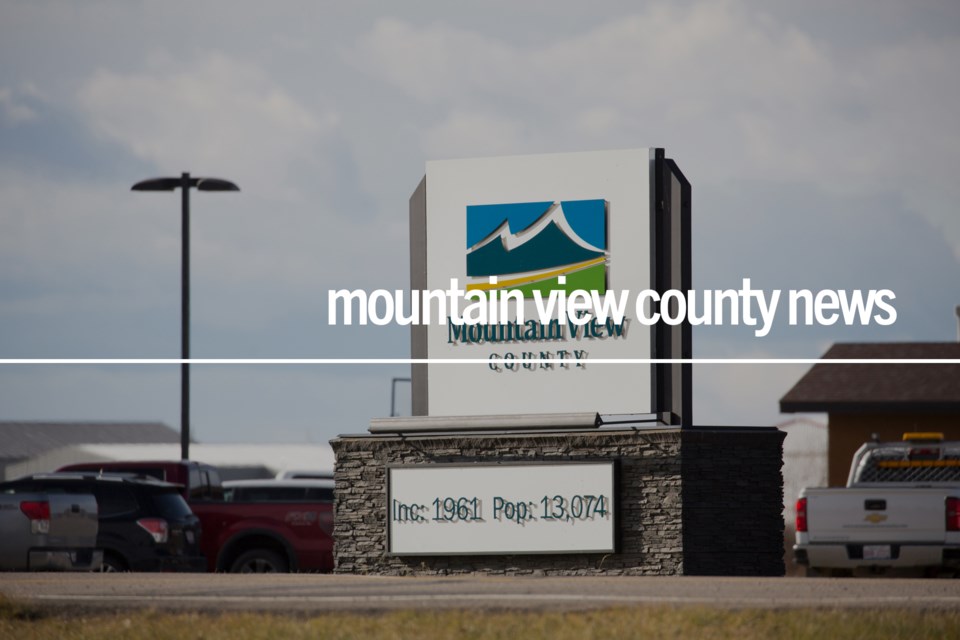MOUNTAIN VIEW COUNTY — County council has been updated on some of the activities and plans of the Parkland Airshed Management Zone (PAMZ), a non-profit society that monitors air quality in the region.
Kevin Warren, executive director of PAMZ, appeared before council as a delegation on May 25. The meeting was held in person and on Zoom.
PAMZ is one of 10 airshed management groups in the province. Mountain View County has been a member since 1997.
PAMZ operates a regional air quality monitoring program that looks at SO2, NO2 and many other compounds. PAMZ’s monitors in a 40,000-square kilometre area that includes both Red Deer and Mountain View counties.
“The whole goal of the PAMZ monitoring program is to provide a good indication of overall air quality, which is quite an improvement on the way things used to be monitored, where they were focused on one or two primary industries,” said Warren.
“PAMZ collects and shares information that helps people develop an understanding of air quality and how it impacts human health, and to encourage industry and the public to engage in clean air practices.”
PAMZ operates four continuous stations, including one portable station, and 26 passive monitoring stations. Seven of PAMZ’ 26 passive stations are in Mountain View County.
Warren explained that the South McDougal Flats Area Protection Society (SMFAPS) made a request for PAMZ to monitor airborne dust associated with a proposed new gravel pit facility located on the northwest corner of Rge. Rd. 6.1 and Twp. Rd. 325.
PAMZ requested the SMFAPS send a written request for dust monitoring.
On Nov. 25, 2021, the PAMZ board passed its 2022 budget that included funds for possible monitoring of dust from the pit.
“It was agreed that in 2022 the issue of the dust from the proposed gravel pit west of Sundre would be reviewed if the pit goes into production.
At the April 29 board meeting, members were told that while the development permit for the gravel pit is in progress it has to yet be finalized.
“PAMZ is not planning to conduct any monitoring before the pit goes into operation and any future monitoring would most likely be downwind of the operation and upwind of residences,” he said.
“There was a request made in April by SMFAPS that PAMZ do monitoring before the pit goes into production. It was made clear that we are not going to do that.”
“It was recommended that if SMFAPS wants to see advance baseline monitoring they could write to the county requesting baseline monitoring as a permit condition.”
Coun. Jennifer Lutz asked Warren if PAMZ continues to use Alberta Energy Regulator data when collecting for its issues response locations.
“Yes, we do,” Warren said. “We still have a process for identifying issues. However we are not holding the public meetings anymore because what we were finding was that it was taking a lot of resources and time to put those meetings together and that over time the number of issues that had been coming forth to PAMZ was dropping drastically.
“So now we’ve increased the capability of the airshed’s website, so if you have an air quality concern you can bring it to our attention through that or in the other channels.”
PAMZ had revenues of $601,913 in 2021, down from $651,388. In 2022, revenues are projected to be $650,763, with 53 per cent coming from industry, 32 per cent from Alberta Environment and Parks, and seven per cent from municipalities.
Expenses last year were $635,719, up from $630,834 in 2020. Expenses are projected to be $650,763 in 2022, including 72 per cent for the monitoring program, 16 per cent for management and five per cent for administration.
Council accepted Warren’s presentation as information.



